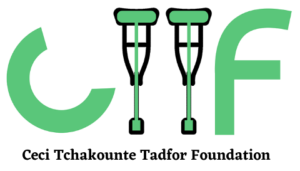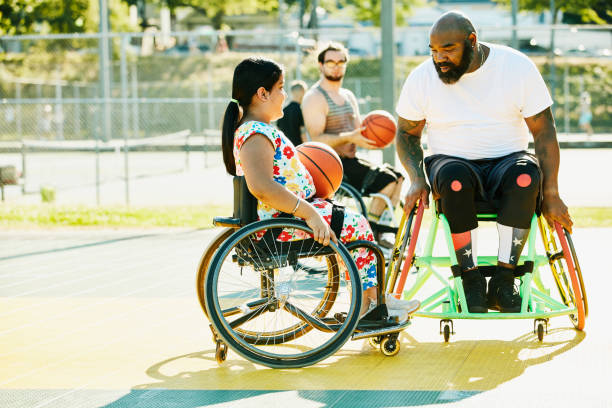Sports and Recreation for Individuals with Disabilities: Embracing Inclusivity and Empowering Abilities
Sports and recreation play a vital role in promoting physical fitness, mental well-being, and social inclusion for people of all abilities. In recent years, there has been a significant emphasis on creating opportunities for individuals with disabilities to engage in various sports and recreational activities.
This article explores the importance of sports and recreation for individuals with disabilities, highlights the benefits, and provides insights into the available adaptive sports and inclusive recreational programs.
Benefits of Sports and Recreation for Individuals with Disabilities:
When implementing specific activities or programs, it is essential to consult with qualified professionals, organizations, and experts in the field of adaptive sports and inclusive recreation to ensure the safety and appropriate accommodations for individuals with disabilities.
- Physical Health and Well-being: Engaging in sports and recreational activities helps improve cardiovascular fitness, strength, and coordination. It contributes to better overall physical health and supports the management of specific disabilities.
- Mental and Emotional Well-being: Participating in sports and recreational activities enhances self-confidence, self-esteem, and body image. It reduces stress, anxiety, and depression, promoting positive mental health.
- Social Inclusion and Connection: Sports and recreation provide opportunities for individuals with disabilities to connect with peers, build friendships, and develop a sense of belonging. It fosters social skills, teamwork, and community integration.
Adaptive Sports And Inclusive Recreational Programs
Adaptive Sports:
- Paralympic Sports: Explore the diverse range of sports available through Paralympic programs, including wheelchair basketball, para-athletics, swimming, sitting volleyball, and many more. Discuss the impact of Paralympic sports in raising awareness and promoting inclusivity.
- Wheelchair Sports: Highlight wheelchair basketball, tennis, rugby, and racing as popular adaptive sports that provide individuals with mobility impairments an avenue to compete and excel.
- Blind and Visually Impaired Sports: Shed light on sports such as goalball, blind soccer, and tandem cycling that cater to individuals with visual impairments, focusing on the adaptive techniques and equipment involved.
Inclusive Recreational Programs:
- Adaptive Adventure and Outdoor Activities: Discuss the importance of inclusive recreational programs that allow individuals with disabilities to engage in outdoor adventures such as hiking, kayaking, and rock climbing.
- Arts and Cultural Activities: Explore inclusive programs incorporating artistic and cultural pursuits, such as adaptive dance, theater, and music, to enhance self-expression and creativity.
- Community-Based Programs: Highlight local initiatives that offer inclusive recreational opportunities within the community, including accessible parks, community centers, and events designed to accommodate individuals with disabilities.
Challenges and Solutions in Sports and Recreation for Individuals with Disabilities
Sports and recreational activities provide numerous physical, mental, and social benefits for individuals of all abilities. However, people with disabilities often face unique challenges when it comes to participating in sports and recreational pursuits.
Let’s explore the common obstacles encountered by individuals with disabilities in sports and recreation and offers practical solutions to overcome these challenges.
1. Accessible Facilities and Equipment:
One of the primary challenges faced by individuals with disabilities is the lack of accessible facilities and suitable equipment. Many sports venues and recreational areas are not designed to accommodate individuals with different abilities. To address this issue, organizations and communities should prioritize the development of accessible facilities, including wheelchair ramps, accessible restrooms, and adaptive sports equipment. This would create an inclusive environment where individuals with disabilities can participate on an equal footing.
2. Inclusive Programming and Awareness:
Another challenge is the lack of inclusive programming and awareness about the opportunities available for individuals with disabilities. Many sports and recreation programs may not be adequately tailored to accommodate the needs and preferences of individuals with disabilities. It is crucial to promote awareness and education about inclusive sports and recreational activities. This can be achieved through community outreach programs, collaborations with disability advocacy groups, and providing training to coaches and staff on inclusive practices.
3. Support and Training for Athletes with Disabilities:
Athletes with disabilities often require specialized training and support to excel in their chosen sports. Challenges may arise in finding knowledgeable coaches and trainers who understand the unique needs of individuals with disabilities. To overcome this, sports organizations should invest in training programs for coaches and staff to enhance their understanding of adaptive sports techniques and strategies. Additionally, fostering a supportive and inclusive team environment can boost the confidence and performance of athletes with disabilities.
4, Financial Barriers:
Financial constraints can also pose a significant challenge for individuals with disabilities in sports and recreation. Adaptive equipment, specialized training, and participation in tournaments or events may come with additional costs. Governments, non-profit organizations, and corporate sponsors should consider offering financial assistance programs, scholarships, or grants specifically designed to support individuals with disabilities in their pursuit of sports and recreational activities. This would help reduce financial barriers and create equal opportunities for participation.
Conclusion:
Sports and recreation can transform lives and create a more inclusive society. By embracing the potential of adaptive sports and inclusive recreational programs, we can break down barriers, challenge stereotypes, and empower individuals with disabilities to unleash their full potential. Through continued support, advocacy, and collaboration, we can create a world where everyone has equal access to the joys and benefits of sports and recreation regardless of their abilities.

